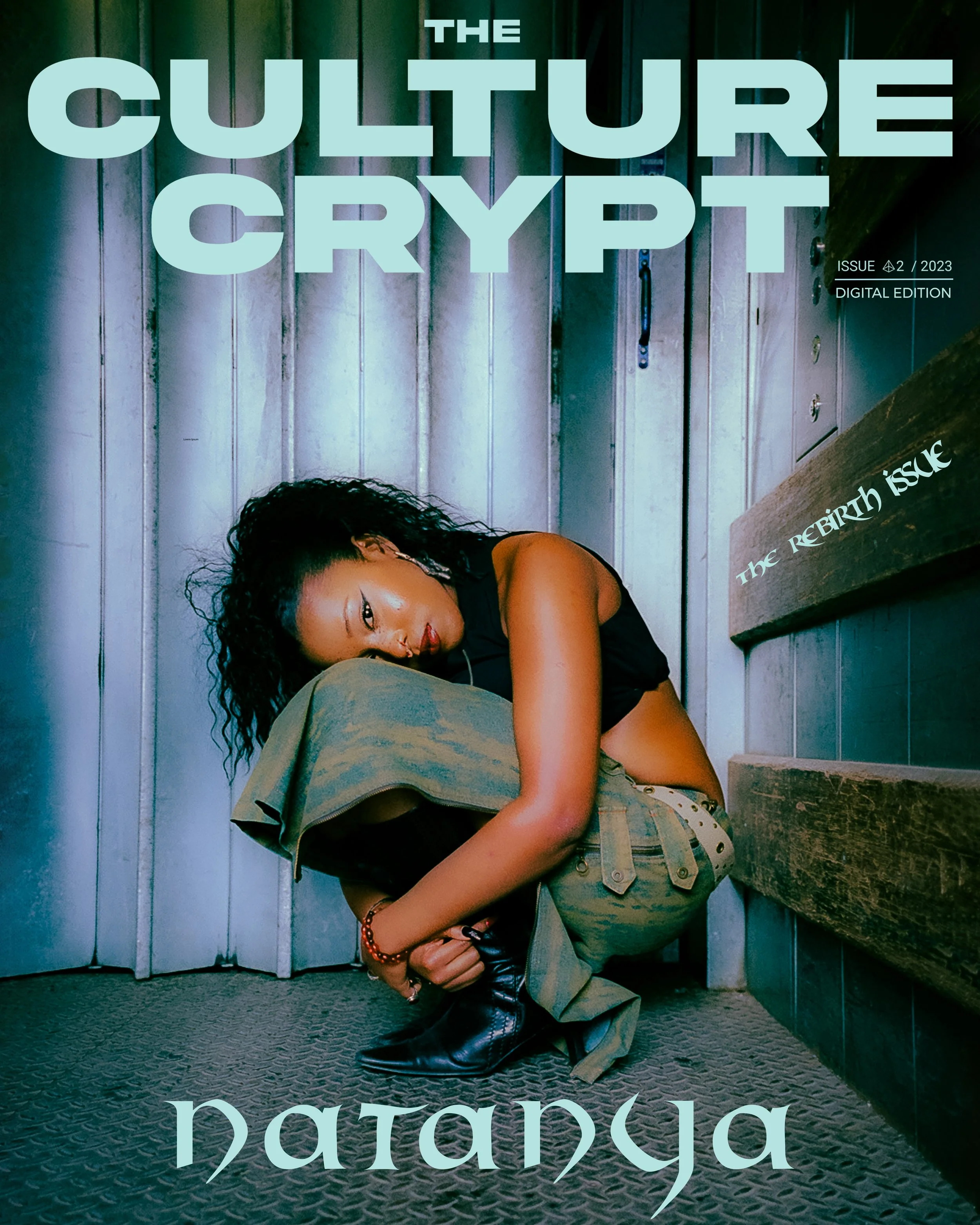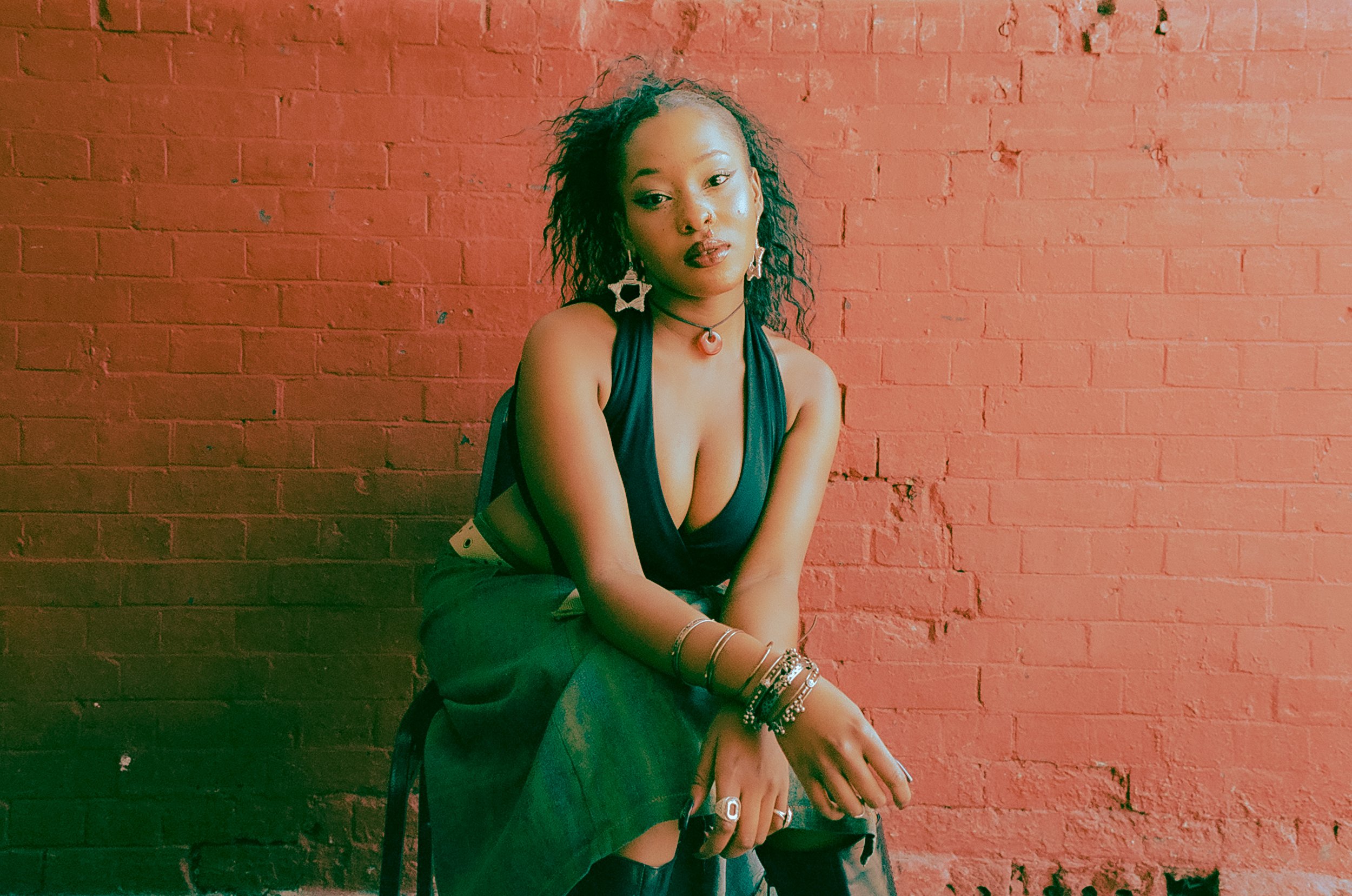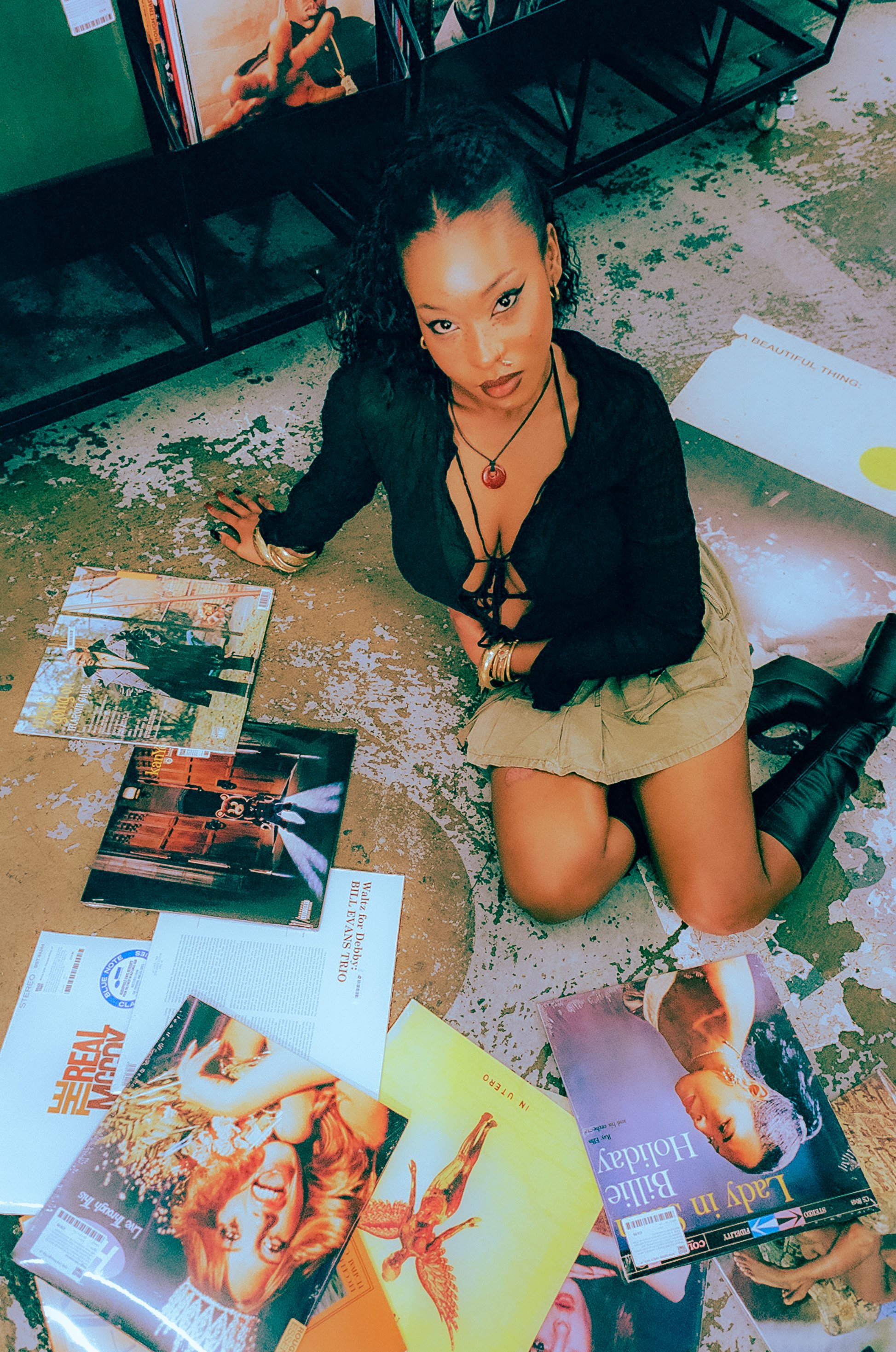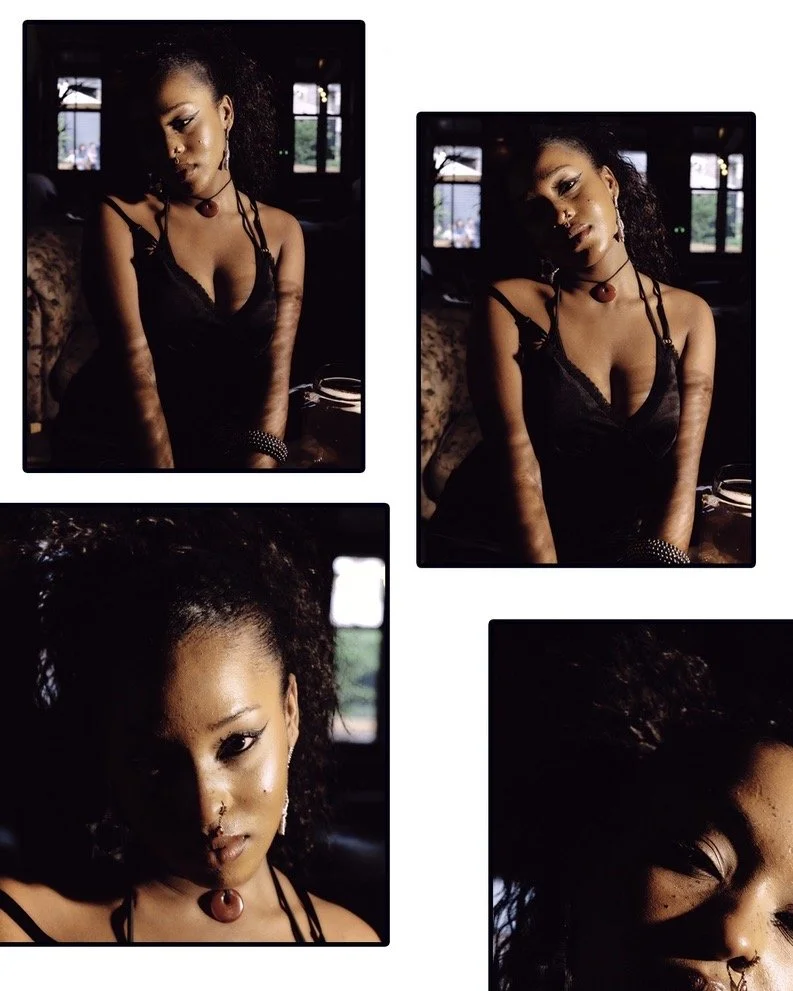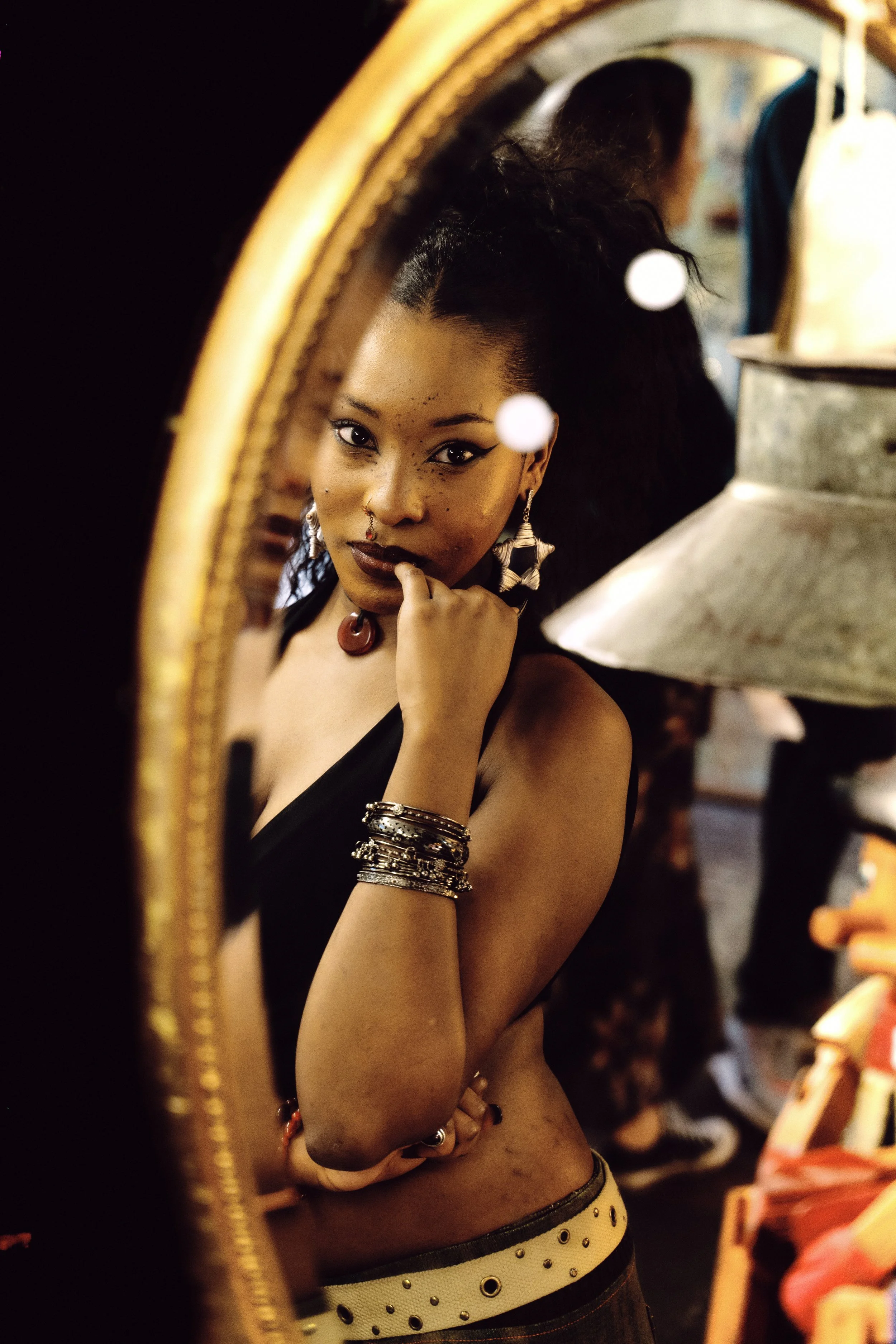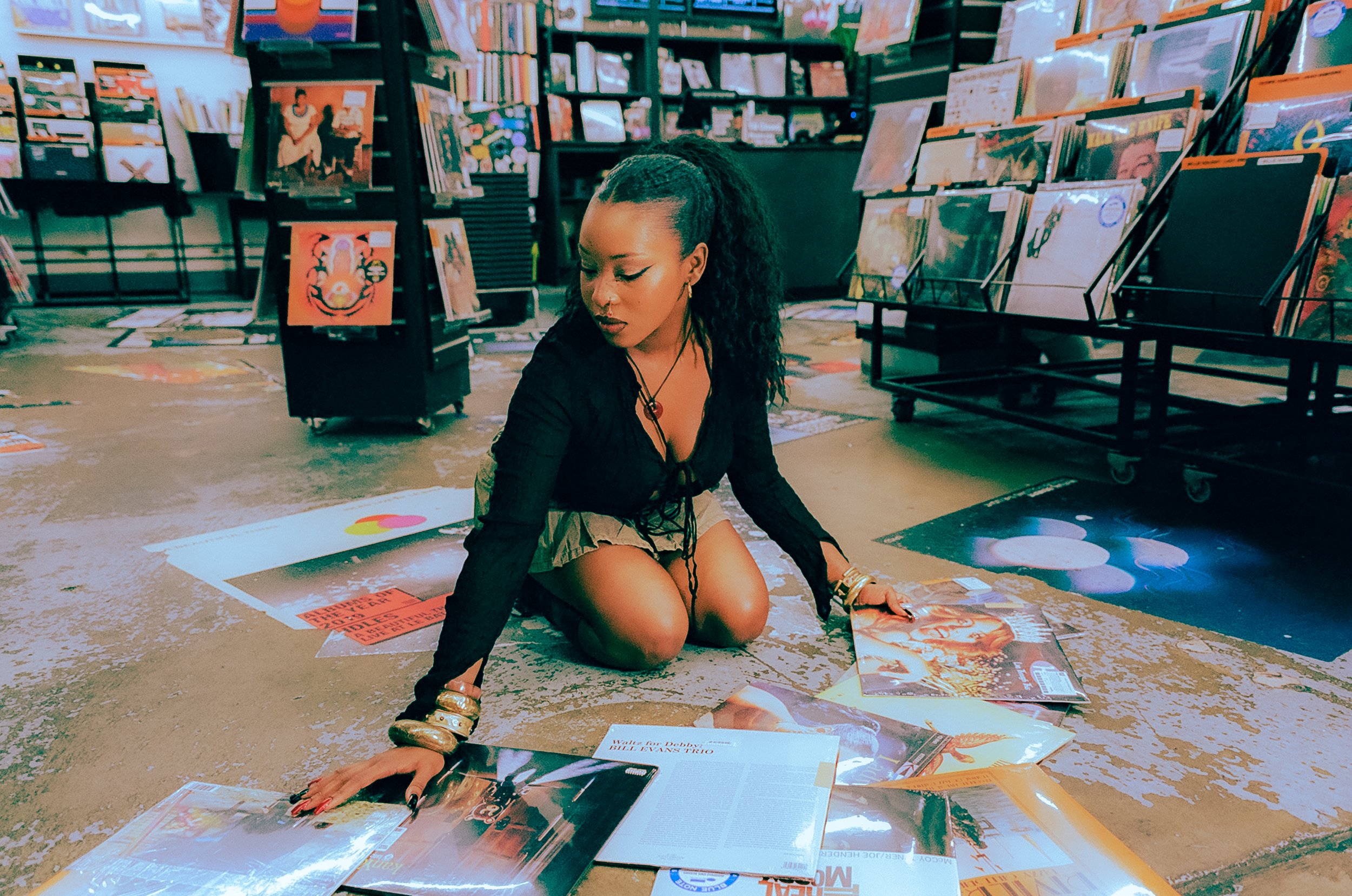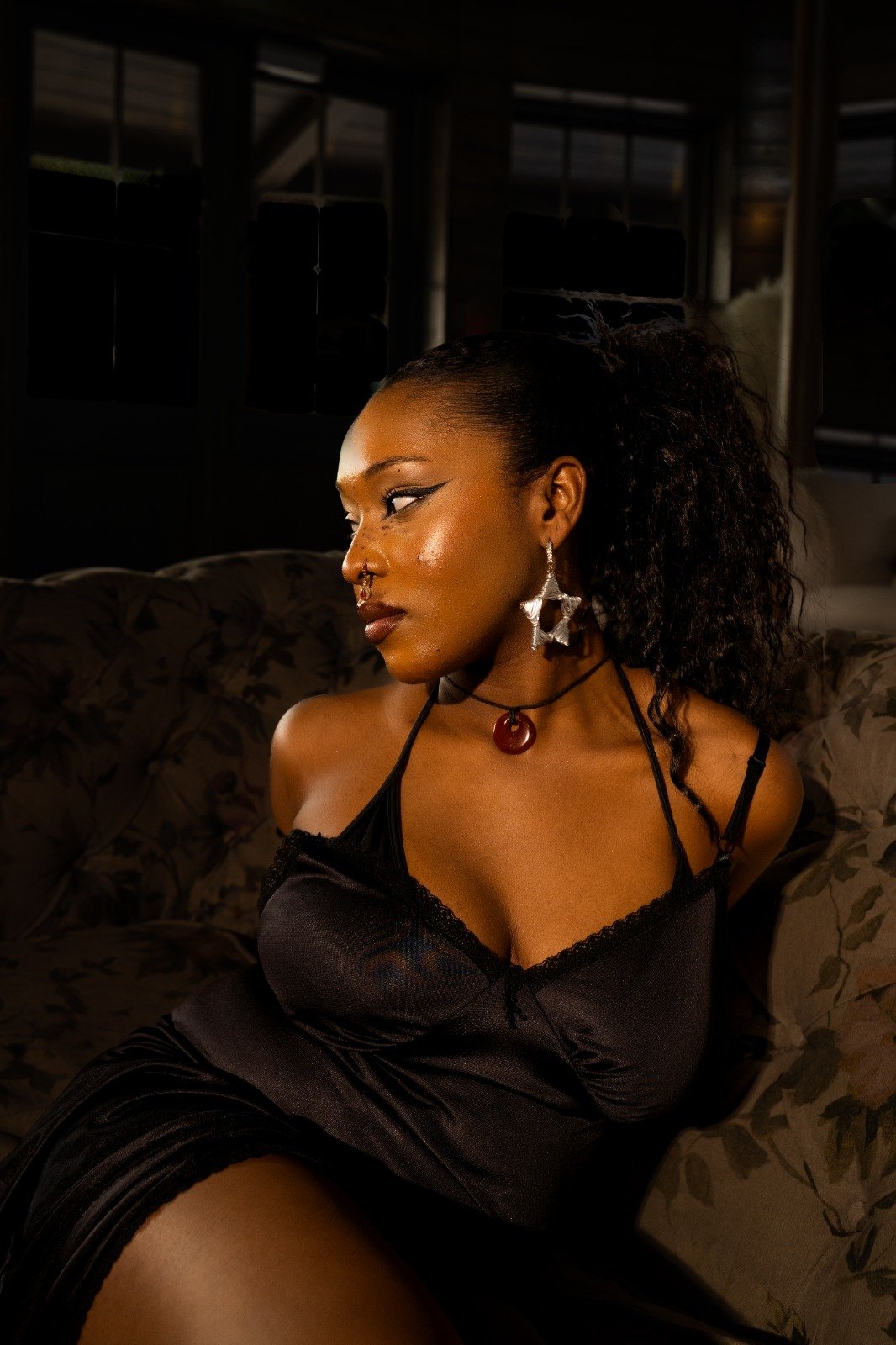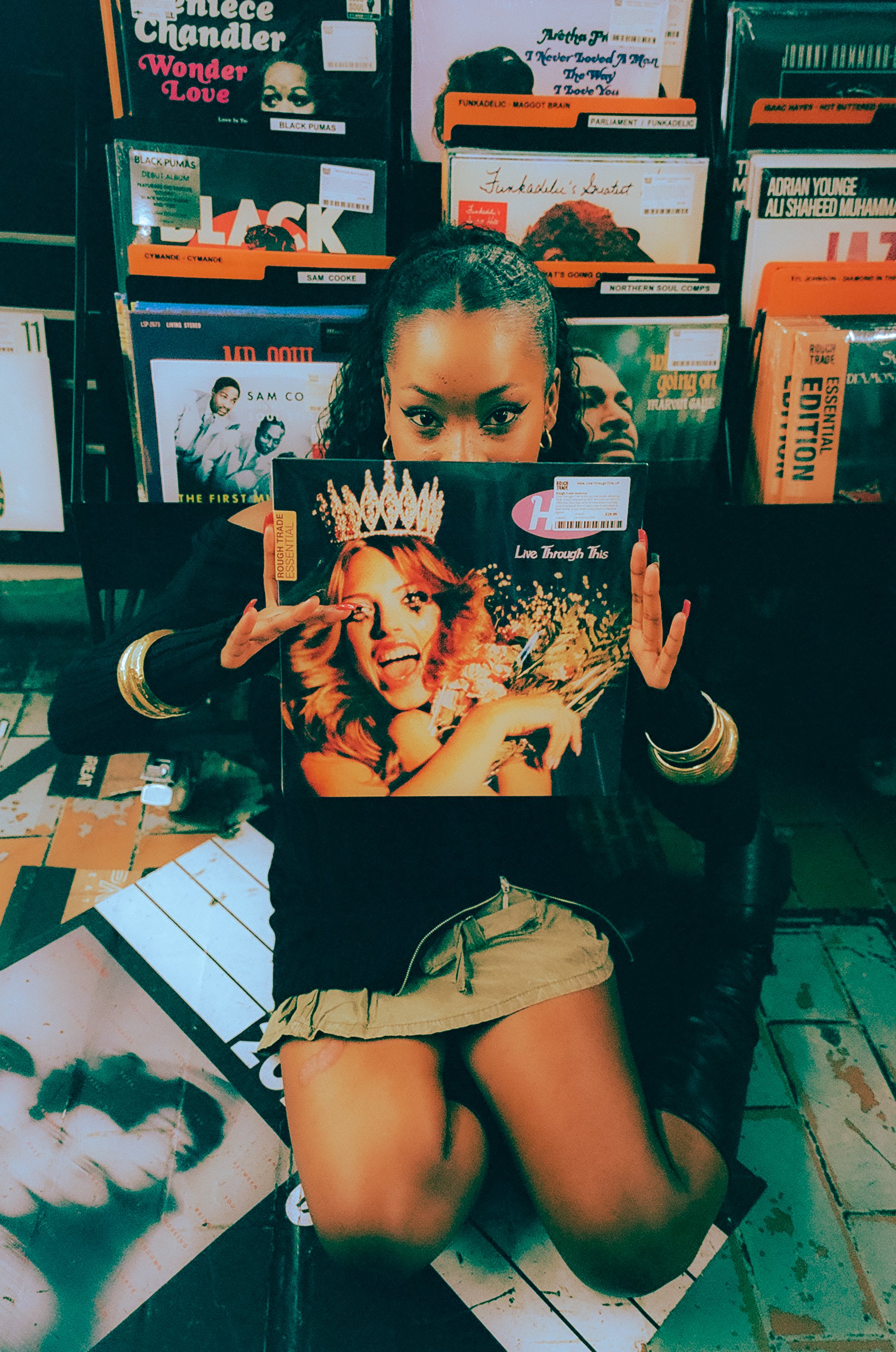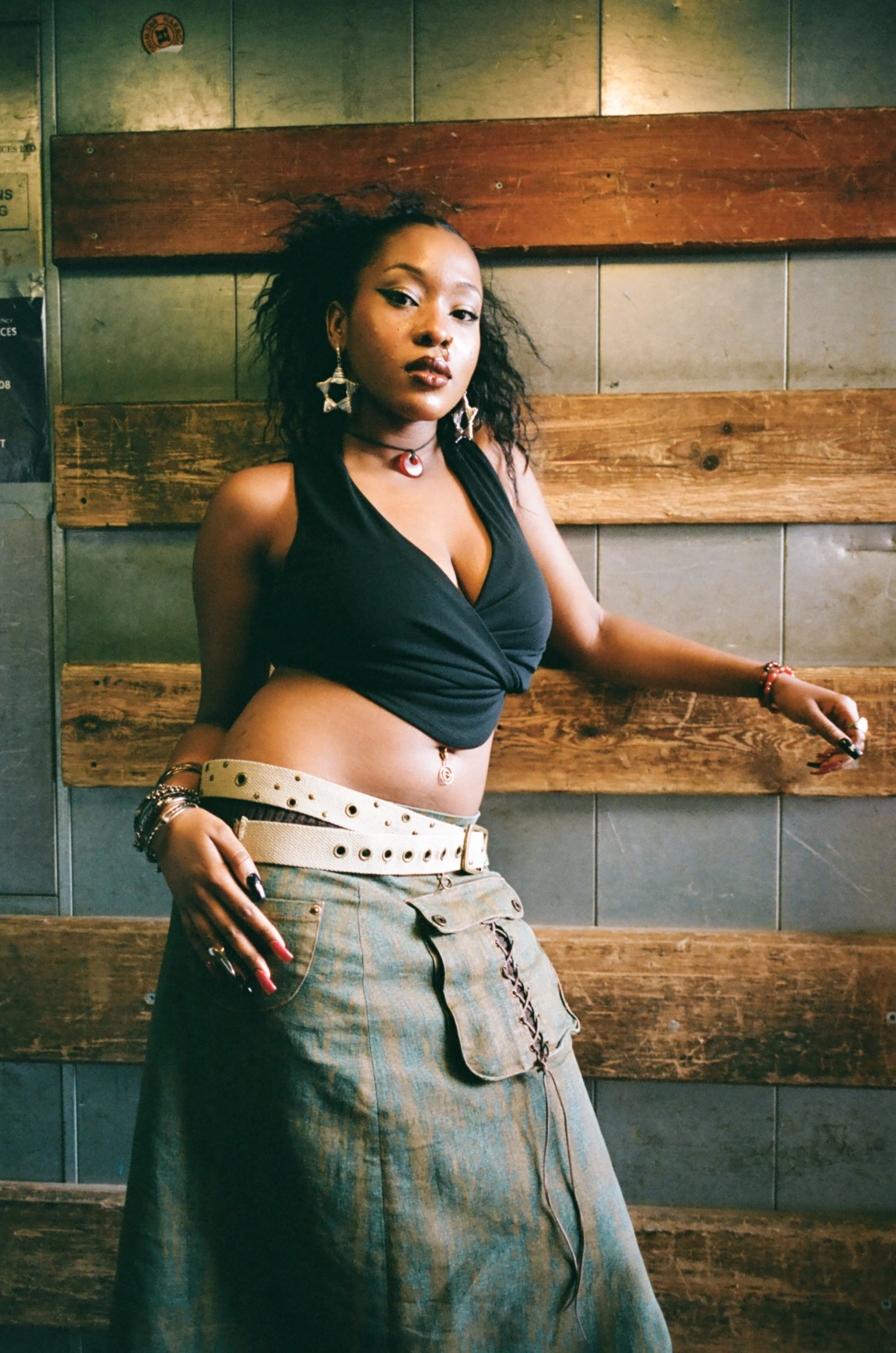Angelic Proclamations: Natanya For The Culture Crypt Issue II
Following the acclaimed release of Natanya's debut EP Sorrow at Sunrise, The Culture Crypt chats with Natanya and dives into her musical influences, creative process and how no one knows her like her piano…
Intelligent songwriters are marked by the ability to take a singular experience and perhaps unintentionally, lay them over a reflective surface on which observers find fragments of themselves peering back at them. This is the beauty of perceptive songwriting, something that Natanya Popoola, the North-West London songstress, producer and pianist, has long been familiar with.
She takes me back to the first song she wrote in Year 3 of primary school called "I've Had a Long Day", which she admits isn't too far removed from her current stream-of-consciousness-styled writing. Natanya confesses to intensely studying adepts like Amy Winehouse, Stevie Wonder and Rod Temperton, who "you can tell the writing of that song was cathartic for them," she says.
"When I was learning to write, that was really who I'd look to because I'd think: 'How did this person tell me that this happened in their life through song? What did they say?" With comprehension of this kind, it's no wonder that Natanya applies a scientific approach to her songwriting, consisting of equal parts storytelling, ambiguity and nuance.
Now, the ever-ascendant Natanya is now entering a season where the seeds she had planted in adolescence—studying jazz and classical piano—are now beginning to bear fruit. She condenses the grandiosity of her emotions into plush soundscapes, resulting in tracks like last year's "Foolish" and recent sweeteners such as "23" and "Raining Tomorrow" coiled to her most recent EP Sorrow at Sunrise.
Editor-in-Chief Janan Jama / Photographer Dylan Khoo / Creative Director Niall Smith / Assistant Creative Director Khurram Salim Rana / Production Coordinator Jazzy Newnham / Graphics Radhika MuthannaHowever, Natanya has always been armed with the desire to express herself. It was the introduction to jazz composition during her studies that unlocked the language she needed to be fully immersed in her craft. "I had lots of curfews, a very strict upbringing so for a while, this was a lot of fun. I used to write made-up stories and it was just about escapism."
As teenage angst gave way to a harsh drinking habit at university, songwriting became a space for Natanya to release her emotions. In reflection, she says, "that summer in my first year, I was having the worst experiences ever. Each experience became another song—and transforming pain, pleasure and passion into song form has been my mindset ever since. I’d go home to my parents' house and write a song on my piano."
Natanya speaks of this visceral connection to her childhood piano, allowing her to write from a place of complete trust and ease—not unlike the sentiment that Sampha bottled into his song, "(No One Knows Me) Like The Piano". Despite the mechanical convenience of a MIDI controller, Logic software, a microphone and a laptop, they were unable to fulfil Natanya in the same way the lush, organic tones of a piano could.
Following these spirals of emotions and avoidance, every now and again, Natanya would return to the true North: her family home. Based in Wembley, North-West London, Natanya would return to hit pause on the demands of navigating the world as an independent person.
She remembers a series of sounds that were massively influential throughout her upbringing. On her mother's iPod, Teddy Pendergrass was off limits. But this further enticed her curious mind, until one day, she finally listened to "Close The Door" and fell in love with his jaunty display of devotion.
Alongside the soul-drenched ballads of Anita Baker, both Michael Jackson and Stevie Wonder were also frequent visitors. Natanya knew their entire discography by the time she began primary school. She inherited her love for the latter through her father, who was also keen on learning Stevie's generational hit "Isn't She Lovely" by ear and would attempt to do so after Natanya's piano lessons. "That was a beautiful memory. That's one of the things about myself that I really love. [Having] a life full of so many different records through time. Those are the core ones that stuck out to me specifically in childhood."
“Despite its convenience, the compact setup of a MIDI controller, Logic software, a microphone and a laptop were unable to prize her open the same way the organic tones of a piano could.”
Natanya had also tuned her ears to the robust flavourings of classical concertos from age four when she began learning the piano. Climbing her way through the traditional grading system before ditching this path to pursue jazz training, inflated her reservoir of influences and musical knowledge.
It's clear that her style is rooted in the lineage of jazz musicians she has been nurtured by. Her tone carries a rich smokiness similar to that of Jean Carne, while the hair-raising vibrato of Sarah Vaughan echoes in her extended notes. Natanya isn't intimidated by these comparisons. Instead, it pleases her to hear as she tells me there are pieces of their technique that she has borrowed to enhance her own abilities.
"They taught me a lot about how to sing. I really like the expressiveness of each of those people in the way that they interpret music. It's important for me to honour that because I think every generation is a champion of soul. I want people to see me as someone that's been learning from jazz legends. I'm not ashamed to say that I'm a fan of people at all." Arguably, Natanya's catalogue of knowledge festers on the fan-favourite cover of The Korgis' 1980 song "Everybody's Gotta Learn Sometimes". Taking the '80s new wave and imbuing it with optimistic introspection, Korgis' 40-year-old lyrics leak out from Natanya's vocal cords like revised declarations.
Stylist Annum Mohammed / Jewellery + Styling assistant Melika Rahimishad / Commissioner Nicolle Rios / PR Glisten PR / Consultant Kobi-Axel Mushandu / Conceptual Advisor Arin De RizzioRepressed emotions always find a way to painfully make their presence known in the body. For Natanya, these unarticulated feelings are only remedied by being channelled into music. "I always talk about my chest feeling so tight and overwhelmed," she says, "so writing a song when I feel like that or recording something is very much a release."
This release is Natanya's own kind of rebirth as it positioned her to make the track "Angel" where she "felt the emotion spill out for the very first time in my life". This welcomed a type of truth-telling which inspired her to sink a little deeper into the uncanny state of her world. Ideas, thoughts and sounds that would seem to have no correlation to the average person mesh together in a harmony of layers.
"That's what I've been doing all my life really; just trying to marry otherworldly confusion with my artistic sense of self. My music is comprised of themes that make me me. Sometimes the difficulty isn't the art, but finding the way to correctly present these ideas to people. It's really just expression. With a lot of songs that I've written for my EP, sometimes I've just sat down at the piano and played a note and it just becomes that. I don't even know how to describe it."
At the heart of Sorrow at Sunrise is a mosaic of jazz stylings and progressive soul that reveals loose threads of electronica, punk and complimentary strains of R&B.
Natanya elaborates further on this idea, saying, "I'm trying to push people's perception of the kind of music a young Black girl can make and what can be inside the brain of someone that looks like me. I love womanly things like getting my nails done and dressing up, but I'm a very serious producer and a very serious piano player." Alongside producers Jkarri and Kwaku Konadu, Natanya takes the lead in curating this layered, yet beautifully abstract symphony.
When an artist lifts the veil of their inner world in this way, we're granted the gift of language to decipher experiences of our own. On her track "Angel", Natanya places us in the shoes of someone who struggles to decipher the intentions of a lover in a budding relationship. When it becomes clear that they perhaps aren't on the same page, she still finds a way to plead with them to stay.
"That's a theme I write about a lot. I really had this issue of feeling like I had to hold on really tight to something or else it would go away and I didn't feel safe just relaxing in these dynamics." It's a story that many of us may recognise in the graduation to adulthood where the insecurities of our adolescent years arrive cloaked in thicker skin.
For the visuals, she felt that director LAUZZA could illustrate the muddled, disjointed feelings explored in the song. We see a pixelated protagonist wander down the street, totally immersed in the sounds that bleed through her headphones.
“I’m trying to push people’s perception of the kind of music a young Black girl can make and what can be inside the brain of someone that looks like me.”
But as we reach the track's bridge and the layered melodies create a majestic overcast, the character becomes overwhelmed by her surroundings in the face of a new relationship. "The song is supposed to demonstrate feelings of overwhelming affection countered by doubt and unreciprocated actions. The feelings are so intense, the level of noise and intensity is supposed to mirror the feeling of build-up in the chest. But in the real world—this probably translates to 'he didn't reply to the text at the right time,' she's just like, 'You don't love me anymore'. That's how my brain is—it's very hyperbolic."
Her demonstration of heartache through her visual language draws from the wellspring of influences like Tim Burton and Charlie Kaufman to create a surrealist world that shuffles the boundaries between the dream and waking state, "like a Cocteau Twins song", she emphasises.
As she boldly expands into new territories, Sorrow at Sunrise marks the beginning of an era where Natanya willingly cracks open the door to her world a little wider with each new release. The idea imbues her with excitement after sitting on years' worth of songwriting, resulting in a loaded hard drive of sonic jewels. All that's left for us to do is hit play.
Stream Sorrow at Sunrise below:


